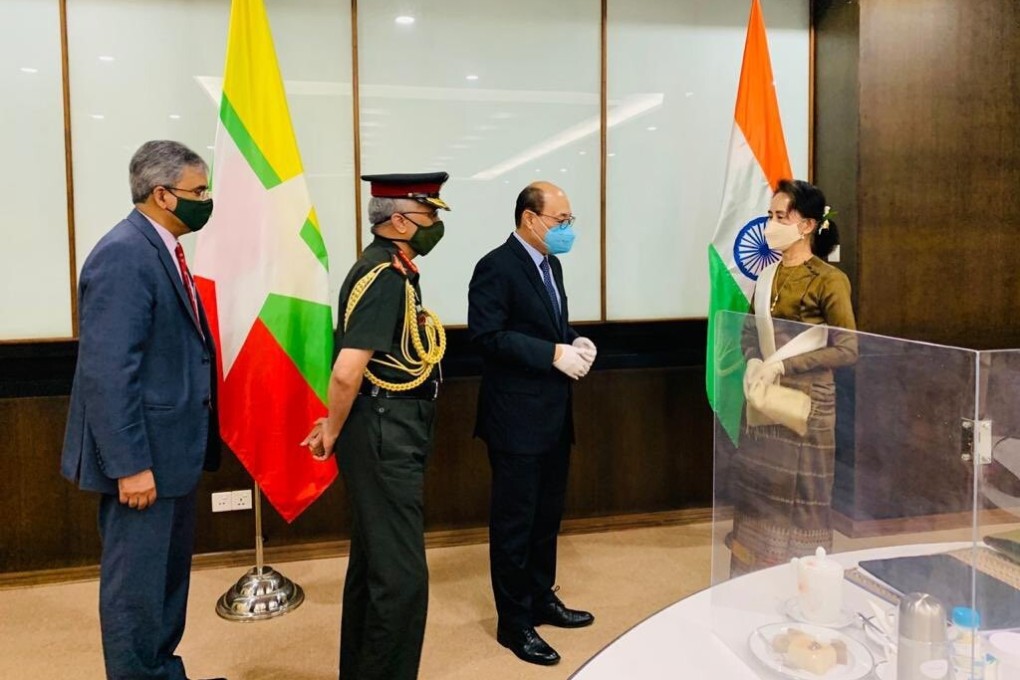Advertisement
Analysis | India responds to Myanmar’s call for closer ties to balance out Chinese influence
- A joint visit by India’s foreign secretary and army chief to Naypyidaw shows New Delhi is doing more to counter Beijing’s growing presence in the region
- But an analyst warns India’s strong ties with Myanmar’s military, known for its crackdowns on rebels and Rohingya Muslims, could harm its reputation
Reading Time:4 minutes
Why you can trust SCMP

For the first time, India’s foreign secretary and army chief made a joint visit to Naypyidaw earlier this week, fuelling talk that Myanmar has stepped up its efforts to balance China’s rising influence and New Delhi is ready to respond.
In all previous Indian administrations, these officials would visit Myanmar at least once in their tenure, usually separately. But foreign secretary Harsh Vardhan Shringla and the Chief of Army Staff M.M. Naravane went together to Myanmar on Sunday and Monday, meeting senior Myanmar leaders including State Counsellor Aung San Suu Kyi and Commander in Chief of Defence Services, Senior General Min Aung Hlaing.
India’s foreign ministry said there were discussions on a range of topics including boosting connectivity, power and energy projects, and working together to beat Covid-19. Indian media reported that New Delhi had proposed building a US$6-billion petroleum refinery project near Yangon.
Advertisement
Shringla also assured his hosts of India’s support for the safe repatriation of displaced Rohingya Muslims who had fled the mostly-Buddhist Rakhine state for Bangladesh.
By cultivating the military, India risks being seen as not giving a damn for the ethnic people.
About 40,000 or more Rohingya live in Indian cities, including Kolkata and Delhi.
Advertisement
Advertisement
Select Voice
Select Speed
1.00x